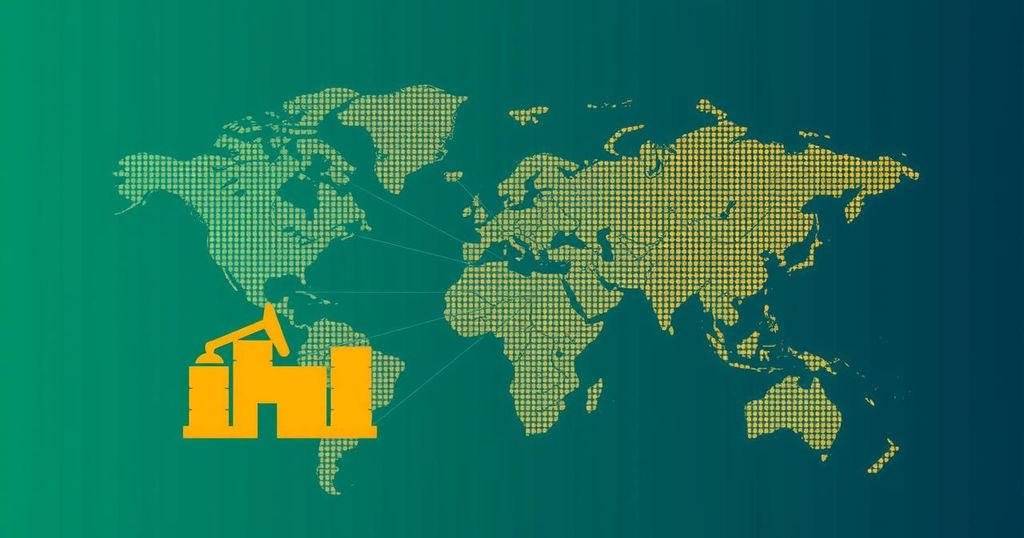Taxing Major Oil Companies Could Sharply Increase UN Climate Fund
A small tax on the world’s largest oil companies could increase the UN Fund for Responding to Loss and Damage by over 2000%. This initiative is designed to mitigate financial impacts from extreme weather events caused by climate change, proposing a long-term tax strategy on fossil fuel extraction and excessive profits. The analysis demonstrates significant potential for revenue generation and advocates for climate justice, shifting the financial burden from victims of climate change to responsible entities.
Recent analysis by Greenpeace International and Stamp Out Poverty reveals that imposing a modest tax on the world’s seven largest oil and gas companies could amplify the UN’s Fund for Responding to Loss and Damage by over 2000%. This initiative aims to address the financial repercussions of extreme weather events, such as hurricanes and floods, exacerbated by climate change. The organizations advocate for a long-term tax strategy on fossil fuel extraction, supplemented by taxes on excessive profits. The financial toll from this year’s extreme weather events, which have been attributed to climate change, has amounted to approximately $64.6 billion, indicating the substantial harm inflicted by fossil fuel companies. For instance, a tax on ExxonMobil’s extraction could cover half the costs incurred by Hurricane Beryl, while similar measures on other corporations could significantly mitigate economic damages from various disasters. The proposal for a Climate Damages Tax (CDT) entails an initial charge of $5 per tonne of CO2-equivalent emissions, with subsequent annual increases creating an expected revenue of $900 billion by 2030. Furthermore, this tax would ensure that the oil and gas industry compensates the communities and workers affected by climate change. Protests have taken place globally, calling for these measures while emphasizing the need for climate justice, directing the financial burden from victims of climate issues back to the industries responsible. Key leaders from both organizations underscore the pressing necessity for innovative solutions to tackle climate damages and support vulnerable communities.
The analysis and advocacy presented by Greenpeace International and Stamp Out Poverty stem from a critical understanding of the financial impacts of climate-related disasters, which are increasingly becoming a norm due to anthropogenic climate change. The UN Fund for Responding to Loss and Damage was initially established to assist developing nations in managing the consequences of natural disasters propelled by climate change. Despite the existing financial framework, further revenue is essential to address both immediate and long-term challenges posed by extreme weather events. The proposed Climate Damages Tax represents a strategic financial tool aimed at reallocating costs from the victims of climate change to those who have profited from fossil fuel extraction, thereby embodying a model of climate justice.
In conclusion, the proposal to levy a Climate Damages Tax on the largest oil and gas producers presents a transformative opportunity to enhance the UN’s climate loss and damage fund significantly. By ensuring that polluters contribute fairly to the economic recovery and adaptation efforts necessitated by climate change, this initiative not only promotes equity but also reinforces the imperative for sustainable energy transitions. Given the rising frequency of climate-related disasters, the implementation of such a tax could prove integral to fostering resilience in vulnerable communities worldwide.
Original Source: www.webwire.com




Post Comment